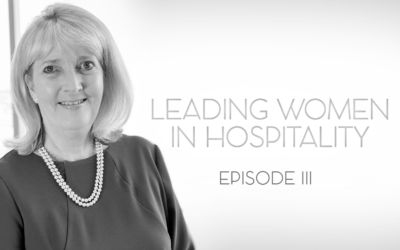Believe it or not, even the most confident among us get nervous before an interview, presentation or important meeting. So, why aren’t these people also sweating and suffering an increased heart rate like you are? Well, they’ve learned coping mechanisms to help deal with their nerves and can now mask their effects.
Want to learn to do the same? Read on for a crash course on how to hide the fact that you’re nervous.
1. Breathe in, Breathe Out
The best way to counteract nervousness and its physical manifestations is to maintain steady breathing. To be able to do this effectively in any situation, you'll need to learn and practice a breathing technique.
Check out Headspace's breathing exercises, and over time, you should notice that you can better regulate your breath, and the other physical symptoms like sweating, flushing, and increased heart rate, should diminish as well.
? Did you know that Headspace is one of the five must-have apps for hospitality professionals? Explore the other four apps now!
2. Take the Focus off Yourself
When we’re nervous, we become hyperaware of our bodies and minds. In a future interview or meeting, instead of thinking about your own nervousness, try not to interact with these anxious thoughts, focus on your breathing, and let them pass. If you want to totally switch your attention, try to focus on an object or a fixed point, and practice deep breathing.
If the attention is 100% on you and you feel like you're panicking, try asking a simple question to another person and divert the attention from yourself. You can then quickly readjust and collect your thoughts.
3. Fight the Urge to Fidget
Touching your hair, checking your phone, tapping your fingers or feet, or biting your nails may seem like good ways to use up your nervous energy; however, they're not. This repetitive fidgeting is a clear sign of nervousness. Try to subtly catch yourself doing these things and focus that energy on your breathing.
4. Take it Slow
The tone and speed of your speech tell a lot about how calm or nervous you are. It's critical to pause between sentences and take a deep breath before continuing. You may be thinking that the quicker you speak, the sooner your speech/interview/meeting will be over, that's true, but it's not beneficial for your audience. The people listening to you want to hear what you have to say, and maybe they're taking notes, so it's even more important to make a conscious effort to speak slowly and clearly.
5. Preparation. Preparation. Preparation.
At times, we begin to feel nervous because we feel underprepared. When we haven't prepared properly, we need to simply acknowledge it and use it as a learning experience for the future. However, if you're confident that you've done all you can, then use it as a positive affirmation and say, "I know that I've prepared to the best of my ability."
Want to put these tips to good use? Apply for hospitality jobs on Hosco now and enter your next interview full of confidence!




